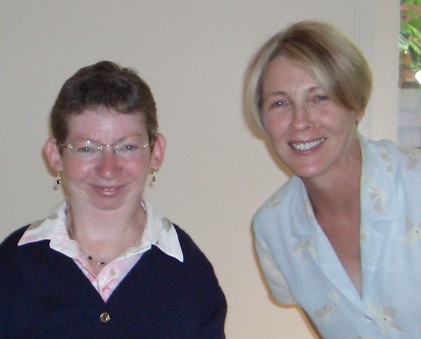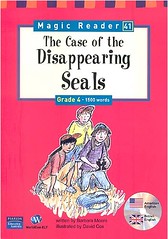(Originally posted April 2008 in two parts at three rivers fog.)
this is new to me. this idea that i should love my body. not hate it.
it’s funny, because i was about to say “this isn’t a post about body image.” but it is, isn’t it?
let’s cut to the point. i’m not talking about beauty standards.
i’m talking about my body. this physical thing.
i need to stop hating that physical thing.
it works differently. it doesn’t work like your body.
but that doesn’t make it bad.
this is hard to grasp. i don’t like this idea.
but maybe it’s better that i respect my body, and how it functions, than malign it, and Other it, and see myself as working against it.
maybe i need to see my body as that physical thing that is trying to help me be everything i want to be.
maybe i need to understand that i just have to interact differently with my body to accomplish that.
and that is not bad. that doesn’t make me Less Than. that doesn’t even make me different — or it shouldn’t, anyway.
maybe the problem is that i have been so indoctrinated into this culture that i can’t even see myself as just being – it’s always how different i am from the “normal” “healthy” body.
you know what, dammit, my body is “healthy.” my body is damn well fucking “normal” for me. when i understand how to work with it? i live a pretty damn nice life.
but the culture i live in doesn’t allow for that view. the culture i live in says that my body is not only different, but different in a bad way, because it doesn’t let me live my life like a normal person does.
fuck that.
i have a lot to work on, here.
revelation: i wouldn’t have such a hard fucking time learning how to work with my body if my culture hadn’t taught me to expect to be The Norm. if my culture hadn’t taught me that if you look like you’re fully-abled, then you must be. if my culture hadn’t taught me that if it doesn’t show up in the bloodwork or the ultrasound then it doesn’t exist. if my culture hadn’t taught me that my pain is simply pathology. if my culture hadn’t taught me about welfare queens and “milking the system.” if my culture hadn’t taught me that disability is both scary and pathetic.
…maybe i just need to understand that this is how my body works and damn it all, there shouldn’t be anything wrong with that — the fact that there is anything “wrong” is a sign of a fucked up culture — not of a fucked up body.
***
…the person who believes ‘I will be real when I am normal’ will always be almost a person, but will never make it all the way.
Eugene Marcos (via, via)
We have been told all our lives that to be accepted, to be successful, to be a whole person, we have to be “normal.”
And so we strive to change ourselves such that we resemble normalcy.
But it is a rare bird that can adapt itself to living in the water — or fish that can adapt itself to fly.[1. I hesitated with this metaphor. I was afraid of the implications. The usual stuff, that pwd are of an entirely different species, that pwd are animals, that pwd are at base un-understandable and therefore nobody should even try. (”We are nearer still when we know we don’t have to understand somebody to know he is real.”) But at the same time, I don’t want to shy away from the implication that we are not all the same. That is what we are pushing to accept. Everyone approaches the world in hir own way, and that is ok, and we don’t all have to come from the same place to be able to travel together.]
Respect your body and your mind. They operate how they operate, and there is no need to change that, not for anyone’s sake. It is not a deficiency. It does not make you lesser. It is not deviancy. It is what you are, and it is good for you.
People on the outside will be uncomfortable with the implications of such a weird and different body (mind) being a good thing, because we have all been indoctrinated into the cult of dominance, where what dominates is Good and Right, and anything that is not the same is Bad and Wrong. It manifests itself in so many different ways even for the same differences. But that is the root of it.
To outsiders, the idea that what you are is definitionally good, because it is good for you, a different person, is disturbing. To outsiders, it says that then, what they are must be bad. And those who think that way will therefore reject you as a person, differences and all.
But there is a different way. There is a way built, fundamentally, on respect. On allowing one another to be what we are, and finding joy in what results. On knowing that when a person falters trying to live in this society, it should not be chalked up to the fact that they are different, but to the fact that society has failed to plan for anything but the dominant, and will then fail in trying to accommodate anything else.
It rests on, again, seeing a person and thinking not: burden, but: potential.
On seeing that person, and recognizing them as a person.
We should all be prepared to accommodate differences, even when it means a change or an extra effort. We should be prepared for this, because we expect as much already from those we are failing to accommodate. We already expect them to change their very being to be able to accommodate how we operate. So we should not protest when we are called upon to open our minds, to change how we think, to change what we do. After all, at least we are not being asked to change what we are.
 This obituary has been provided by Marion May Campbell, who supervised Barbara Moore’s thesis, The Art of Being a Tortoise: Life in the Slow Lane. The thesis is being edited for submission for a Master of Arts by Research in Creative Writing at the School of Culture & Communication, University of Melbourne. Many thanks to Marion for sharing Barbara’s life with us. Three excerpts from Barbara’s memoir have been included at the foot of the post, with the permission of her family and supervisor.
This obituary has been provided by Marion May Campbell, who supervised Barbara Moore’s thesis, The Art of Being a Tortoise: Life in the Slow Lane. The thesis is being edited for submission for a Master of Arts by Research in Creative Writing at the School of Culture & Communication, University of Melbourne. Many thanks to Marion for sharing Barbara’s life with us. Three excerpts from Barbara’s memoir have been included at the foot of the post, with the permission of her family and supervisor.
 Barbara began writing educational children’s books. Four of these were published by Pearsons, and translated into many languages. She told me, her eyes sparkling with mirth, that her children’s books sold well in Korea and that she was ‘hot in Siberia’.
Barbara began writing educational children’s books. Four of these were published by Pearsons, and translated into many languages. She told me, her eyes sparkling with mirth, that her children’s books sold well in Korea and that she was ‘hot in Siberia’.